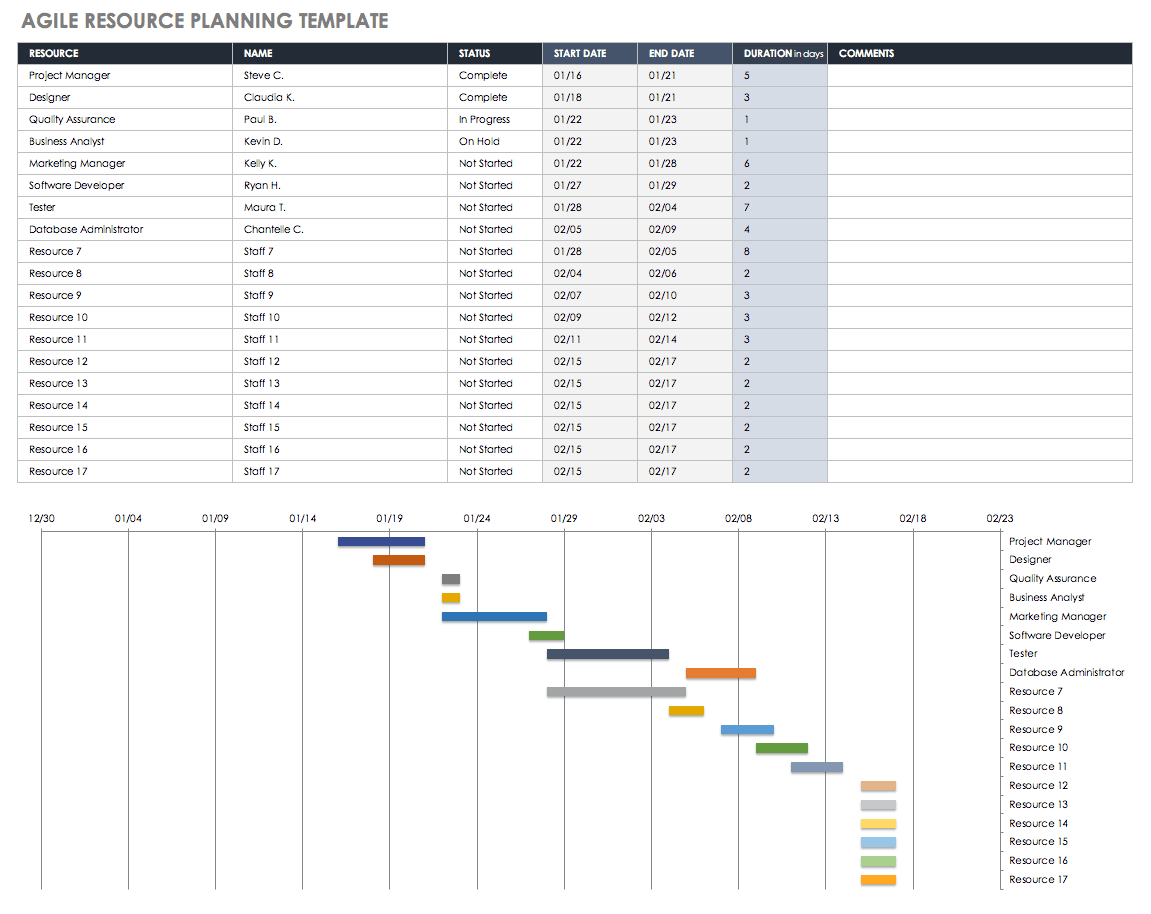
All You Need to Know About SAP Connection Setup in Workload Automation
All you need to know about how to setup SAP connection in workload automation – sounds daunting, right? But trust me, it’s not as scary as it seems! This guide will walk you through every step, from understanding the different connection types (RFC, BAPI, IDoc – I’ll explain those!) to troubleshooting those inevitable connection hiccups. We’ll cover setting up connections in popular workload automation platforms, securing your connections, and even diving into some advanced techniques.
Get ready to become an SAP connection ninja!
We’ll explore the prerequisites, configuration steps, and best practices for establishing a rock-solid connection between your workload automation tool and your SAP system. We’ll tackle common errors, offer practical solutions, and even show you how to interpret those cryptic SAP error messages. By the end, you’ll be confidently managing your SAP connections and automating those crucial processes with ease.
Understanding SAP Connection Requirements in Workload Automation

Successfully integrating SAP systems into your workload automation strategy hinges on establishing reliable and efficient connections. This involves understanding the various connection methods available and meticulously configuring the necessary prerequisites. Choosing the right approach significantly impacts performance and overall system stability.
SAP Connection Methods
Workload automation often utilizes several methods to interact with SAP systems. Each offers unique strengths and weaknesses, impacting performance and suitability for different tasks. The most common methods include Remote Function Calls (RFC), Business Application Programming Interfaces (BAPI), and Intermediate Documents (IDoc). Selecting the appropriate method depends on factors such as the complexity of the data exchange, the required level of security, and the performance needs of your automation process.
Prerequisites for Establishing an SAP Connection
Before attempting to connect your workload automation system to SAP, several prerequisites must be met. These encompass both software and configuration aspects. Failure to address these correctly can lead to connection failures and operational disruptions.
- SAP System Details: You need the SAP system’s hostname or IP address, system number (SID), system ID, client number, and the relevant user credentials with appropriate authorizations. Incorrect credentials will prevent connection.
- SAP GUI Installation (Often Required): While not always strictly necessary for all connection types, having the SAP GUI installed can be beneficial for troubleshooting and initial testing. It allows direct interaction with the SAP system to validate connection settings and user permissions.
- Necessary Libraries and Connectors: Your workload automation tool will require specific libraries or connectors to interact with SAP. These are typically provided by the vendor and must be correctly installed and configured. The correct version is crucial for compatibility.
- Network Connectivity: Ensure proper network connectivity between your workload automation server and the SAP system. Firewall rules, network segmentation, and DNS resolution must all be configured correctly. Network latency can significantly impact performance.
- SAP RFC Configuration: For RFC connections, you need to ensure the appropriate RFC destinations are configured within the SAP system. These destinations specify the connection parameters for your workload automation server. Misconfigurations here are a common source of connection issues.
Verifying SAP System Connectivity
After configuring the connection, verification is crucial. Several tools can help in this process.
- SAP GUI: Using the SAP GUI, you can directly test the connection using the transaction code `SM59` (RFC Destination Maintenance). This allows you to test the connection parameters and identify any issues immediately.
- Workload Automation Tool’s Built-in Testing Mechanisms: Many workload automation tools provide built-in testing capabilities to validate SAP connections. These typically involve executing a simple test transaction or query to verify connectivity and data retrieval.
- Ping and Traceroute: Basic network troubleshooting tools like `ping` and `traceroute` can help determine network connectivity between the workload automation server and the SAP system. These can identify network latency or connectivity problems.
Performance Comparison of SAP Connection Methods
| Connection Method | Performance | Complexity | Security |
|---|---|---|---|
| RFC | Generally good for simple transactions | Relatively low | Good, uses SAP’s security mechanisms |
| BAPI | Can be slower for large data sets, but offers greater functionality | Medium | Good, uses SAP’s security mechanisms |
| IDoc | Best for asynchronous, large-volume data transfers | High | Good, uses SAP’s security mechanisms |
Configuring SAP Connections in Your Workload Automation Tool
Setting up a robust connection between your workload automation platform and your SAP system is crucial for automating SAP processes. This involves configuring specific parameters within your automation tool to establish secure and reliable communication with your SAP landscape. The exact steps may vary slightly depending on the specific workload automation platform you’re using (e.g., Control-M, Autosys, Tivoli), but the core principles remain consistent.
This section will Artikel a general process, using Control-M as an example.
Control-M SAP Connection Configuration
To configure an SAP connection in Control-M, you’ll navigate to the connection definition section within the Control-M Configuration Manager. This typically involves creating a new connection object, specifying connection details, and then testing the connection to verify its functionality. The process involves several steps.
- Creating a New SAP Connection: You would typically find an option to create a new connection within the Control-M Configuration Manager. This might involve selecting a “New Connection” button or a similar menu option within the SAP connector configuration section. A new window or form will appear where you input the connection parameters.
- Specifying Connection Parameters: This involves entering several key pieces of information, including the SAP system’s Application Server hostname or IP address, system number (SID), system ID, client number, user ID, password, and language. A screenshot of this configuration screen would show input fields for each of these parameters, possibly with dropdown menus for certain options like language. The screen would likely have a title indicating “SAP Connection Parameters” or something similar.
For instance, there would be fields clearly labeled “Application Server”, “System ID”, “Client”, “User”, and “Password”. A “Language” field might offer a dropdown menu of supported SAP languages (e.g., EN, DE, FR).
- Testing the SAP Connection: Once all parameters are entered, Control-M typically provides a “Test Connection” button or function. Clicking this initiates a connection attempt to the specified SAP system. A successful test would display a confirmation message; otherwise, an error message would indicate the problem. A screenshot of a successful test would show a dialog box with a message like “Connection Successful,” while a failed test would show an error message, possibly indicating the specific reason for failure (e.g., incorrect password, network connectivity issues).
Common SAP Connection Parameters and Their Significance
Several key parameters are essential for establishing a successful SAP connection. Understanding their roles is vital for troubleshooting and ensuring proper configuration.
| Parameter | Significance |
|---|---|
| Application Server | The hostname or IP address of the SAP application server. |
| System ID (SID) | The unique identifier of the SAP system instance. |
| System Number | The numeric identifier of the SAP system. |
| Client | The SAP client number which defines a specific logical instance within the SAP system. |
| User | The SAP user ID with sufficient authorization to access the required data and perform the intended operations. |
| Password | The password associated with the specified SAP user ID. |
| Language | Specifies the language used for communication with the SAP system. |
Testing the SAP Connection, All you need to know about how to setup sap connection in workload automation
Testing the connection is a crucial step to ensure that the configuration is correct and that your workload automation tool can successfully communicate with your SAP system. This typically involves a built-in test function within the connection configuration interface. A successful test confirms that the provided credentials are valid, network connectivity is established, and the SAP system is reachable.
Failure may indicate issues with network configuration, incorrect credentials, or problems with the SAP system itself.
Flowchart for Establishing and Verifying an SAP Connection
[A flowchart would be visually represented here. It would begin with “Start,” then proceed to “Configure SAP Connection Parameters” (with boxes for each parameter), followed by “Test Connection.” The “Test Connection” box would have two branches: one leading to “Connection Successful” (and then “End”) and the other to “Connection Failed” (with a branch to “Troubleshooting” and then back to “Configure SAP Connection Parameters”).]
Handling SAP Connection Errors and Troubleshooting
Setting up an SAP connection within your workload automation system is a crucial step, but it’s not always smooth sailing. This section dives into the common pitfalls you might encounter and provides practical solutions to get you back on track. Understanding the root causes of these errors is key to efficient troubleshooting.Troubleshooting SAP connection issues often involves a systematic approach, combining careful examination of error messages with checks of your system configuration.
This process can be significantly streamlined by having a clear understanding of the potential problem areas and how to address them effectively.
Authentication Failures
Authentication failures are a frequent cause of SAP connection problems. This typically means your workload automation tool cannot verify its credentials with the SAP system. This could be due to incorrect usernames, passwords, or client numbers, or issues with the SAP system’s authorization settings.
- Incorrect Credentials: Double-check that the username, password, and client number entered in your workload automation tool precisely match the credentials provided by your SAP administrator. Pay close attention to capitalization and special characters.
- Password Expiration: Ensure your SAP password hasn’t expired. If it has, update the password in your workload automation tool’s configuration settings.
- Authorization Issues: Contact your SAP administrator to verify that the user account you’re using has the necessary authorizations to access the required SAP systems and data. Insufficient privileges can prevent connection establishment.
- Incorrect RFC Destination: Verify the RFC destination name and settings in your SAP system are correctly configured and match the settings in your workload automation tool.
Network Connectivity Problems
Network connectivity issues can prevent your workload automation tool from reaching the SAP system. This could involve problems with firewalls, network configurations, or the SAP system’s availability.
- Firewall Restrictions: Check that your firewall allows communication between your workload automation server and the SAP system on the necessary ports (typically ports 3299 and 3300 for RFC connections). Consult your network administrator for assistance.
- Network Configuration: Verify that the network settings (IP addresses, hostnames) in your workload automation tool’s SAP connection configuration accurately reflect the SAP system’s network location. Incorrect DNS settings or network routing problems can hinder connectivity.
- SAP System Downtime: Confirm that the SAP system is online and accessible. If the SAP system is experiencing downtime or maintenance, your connection attempts will naturally fail.
SAP System Errors
Sometimes, the problem originates within the SAP system itself. This might manifest as SAP-specific error messages indicating problems with the SAP system’s configuration or internal processes.
- SAP Error Message Analysis: Carefully examine the complete SAP error message returned during the connection attempt. This message usually contains a detailed description of the problem and a relevant error code. Refer to the SAP documentation or contact your SAP administrator for assistance interpreting the error code.
- SAP Transaction Codes: Use relevant SAP transaction codes (like SM59 for RFC connections) to verify the configuration of the RFC destination in the SAP system. This can help identify any misconfigurations or problems on the SAP side.
- SAP System Logs: Review the SAP system’s logs for any error messages or warnings related to the connection attempts from your workload automation tool. These logs often provide crucial clues for diagnosing the issue.
Troubleshooting Guide
A structured approach is crucial for effective troubleshooting. First, verify the basics: credentials, network connectivity, and SAP system availability. Then, systematically check the configuration settings in both your workload automation tool and the SAP system. Analyzing error messages and logs is the final step. Remember to consult your SAP administrator if you are unable to resolve the issue.
Secure SAP Connections in Workload Automation: All You Need To Know About How To Setup Sap Connection In Workload Automation
Securing your SAP connections within your workload automation system is paramount. A compromised connection can lead to data breaches, system instability, and significant financial losses. This section details best practices to fortify your SAP integration and maintain a robust security posture. We’ll cover essential aspects like password management, encryption, authentication, and monitoring to help you build a secure and reliable connection.
Implementing robust security measures for your SAP connections requires a multi-layered approach. This involves not only protecting the connection itself but also managing the credentials used to access SAP systems and regularly monitoring for suspicious activity.
Password Management and Encryption
Strong password management is the foundation of secure SAP connections. Avoid using easily guessable passwords and instead utilize complex, unique passwords for each connection. Consider using a password management system to securely store and manage these credentials. Furthermore, encrypting the connection itself using TLS/SSL is critical. This ensures that all data transmitted between your workload automation tool and the SAP system is protected from eavesdropping.
The encryption process uses cryptographic algorithms to scramble the data, making it unreadable to unauthorized individuals. Implementing strong encryption protocols like TLS 1.2 or higher is essential.
Authentication Mechanisms
Robust authentication mechanisms are crucial to prevent unauthorized access to your SAP systems. Instead of relying solely on passwords, consider implementing multi-factor authentication (MFA). MFA adds an extra layer of security by requiring users to provide multiple forms of authentication, such as a password and a one-time code generated by an authenticator app. Another best practice is to use dedicated service accounts with restricted permissions for your workload automation processes, rather than granting full access using a general user account.
This principle of least privilege limits the potential damage from a compromised account.
Monitoring SAP Connection Activity
Continuous monitoring of SAP connection activity is crucial for identifying and responding to potential security breaches. Implement logging mechanisms to track all connection attempts, successful logins, and failed logins. Regularly review these logs for suspicious patterns, such as numerous failed login attempts from unusual IP addresses. Consider setting up alerts to notify administrators of unusual activity, allowing for prompt investigation and remediation.
Setting up an SAP connection in your workload automation can seem daunting, but it’s a crucial step for streamlined processes. Understanding the various connection methods and configurations is key, and sometimes you need to think outside the box for efficient solutions. For instance, integrating with modern development approaches, as discussed in this insightful article on domino app dev the low code and pro code future , can inform best practices.
Ultimately, mastering SAP connections within your automation workflow unlocks significant efficiency gains.
This proactive approach can significantly reduce the impact of potential security incidents.
Security Checklist for SAP Connections
Before establishing and maintaining secure SAP connections, a thorough checklist is vital. This ensures a comprehensive and secure setup.
The following checklist Artikels key considerations:
- Use strong, unique passwords for each SAP connection.
- Implement multi-factor authentication (MFA).
- Encrypt connections using TLS/SSL with strong encryption protocols (TLS 1.2 or higher).
- Utilize dedicated service accounts with restricted permissions.
- Regularly review and update SAP connection credentials.
- Implement comprehensive logging and monitoring of connection activity.
- Regularly audit security configurations and update security patches.
- Conduct regular penetration testing and vulnerability assessments.
- Establish clear incident response procedures in case of a security breach.
- Comply with relevant security standards and regulations.
Advanced SAP Connection Techniques in Workload Automation

Stepping beyond the basics of establishing an SAP connection, this section delves into more sophisticated techniques for integrating SAP systems into your workload automation processes. Mastering these advanced methods unlocks greater efficiency, flexibility, and control over your automated workflows. We’ll explore leveraging powerful SAP features, integrating with other systems, and managing multiple connections effectively.
Utilizing advanced SAP features significantly enhances the capabilities of your workload automation. This allows for more complex and finely tuned automation scenarios, improving overall efficiency and reducing manual intervention.
Using RFC Function Modules and BAPI Transactions
RFC (Remote Function Call) function modules and BAPIs (Business Application Programming Interfaces) are powerful tools for interacting with SAP systems programmatically. RFCs allow you to execute specific functions within SAP, while BAPIs provide standardized interfaces for accessing and manipulating business objects. In workload automation, these are crucial for automating complex business processes. For example, an RFC can be used to trigger a specific report in SAP, while a BAPI can be used to create or update sales orders.
The choice between RFC and BAPI depends on the specific task; BAPIs generally offer better standardization and maintainability.
Integrating SAP Connections with Other Systems
Seamless integration of SAP with other systems is a key requirement for many modern businesses. This often involves using middleware or APIs to facilitate communication. A common approach is to use an Enterprise Service Bus (ESB) to orchestrate the flow of data between SAP and other applications. For example, an automated workflow might pull data from a CRM system, process it through an SAP function module, and then update a warehouse management system.
The ESB acts as a central hub, managing the communication and ensuring data integrity. Another approach involves using direct API calls, depending on the capabilities of the involved systems. This requires careful consideration of security and error handling.
Managing Multiple SAP Connections
Many organizations need to connect to multiple SAP systems – perhaps different landscapes, clients, or instances. Efficiently managing these connections is vital. Several strategies exist, each with trade-offs. A central connection pool can be implemented to manage connections, reusing connections where possible to reduce overhead. This is often implemented using connection pooling libraries within your automation tool.
Alternatively, separate connections can be established for each SAP system, providing greater isolation but potentially increased resource consumption. The best approach depends on factors such as the number of systems, the frequency of access, and performance requirements.
Examples of Using Different SAP Connection Types
The choice of SAP connection type depends heavily on the specific automation task and the available resources. Understanding the strengths and weaknesses of each type is crucial for efficient automation.
- RFC Connection for Report Execution: An RFC connection is ideal for triggering and retrieving data from SAP reports. The automation tool can initiate an RFC call to a specific report, retrieve the output, and process it further.
- BAPI Connection for Order Creation: Using a BAPI connection allows the automation tool to create sales orders in SAP programmatically. This eliminates manual data entry and ensures data consistency.
- IDoc Connection for Data Exchange: IDocs are used for asynchronous data exchange between SAP and external systems. This is suitable for scenarios where immediate response isn’t necessary, such as transferring large datasets overnight.
- OData Connection for Real-time Data Access: OData provides a RESTful interface for accessing SAP data in real-time. This is useful for integrating SAP with modern applications and dashboards requiring up-to-the-minute information.
Closing Summary

Setting up an SAP connection in your workload automation environment might seem complex at first glance, but with a structured approach and a clear understanding of the different connection methods and security considerations, it becomes a manageable and even empowering task. Mastering this connection unlocks a world of automated possibilities, streamlining your business processes and freeing up valuable time and resources.
So go forth, and automate!
Key Questions Answered
What if my SAP connection keeps timing out?
Check your network connectivity, ensure the SAP system is reachable, and verify the connection parameters (client, user, password) are correct. Also, investigate potential firewall issues.
How often should I test my SAP connection?
Regular testing is crucial. The frequency depends on your system’s criticality, but at least once a week or after any system changes is recommended.
Can I use different connection types for different tasks?
Absolutely! RFC is ideal for function calls, BAPI for business transactions, and IDocs for asynchronous data exchange. Choosing the right method optimizes performance and efficiency.
What’s the best way to manage passwords for SAP connections?
Use a secure password management system that complies with your organization’s security policies. Avoid hardcoding passwords directly into your automation scripts.
